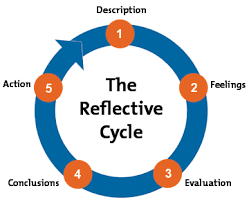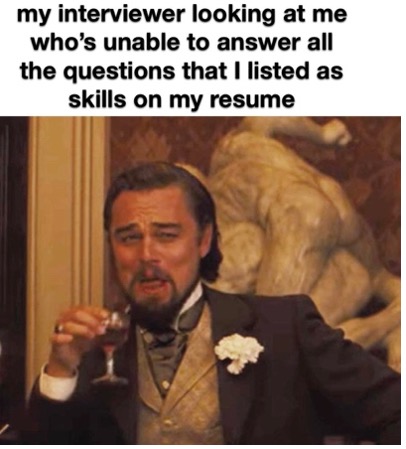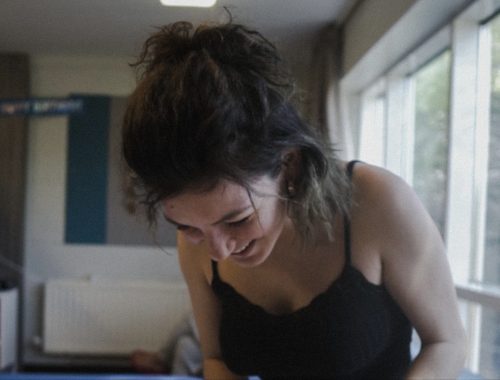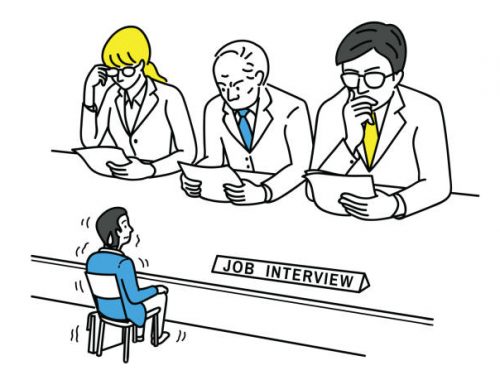The Pressure Cooker
Now we’re getting to the business end of the process. This 2nd blog details how I didn’t think that a ‘simple’ conversation with my classmates would be more nerve wrecking than carrying out the actual work placement. Well, I was wrong. The thought of your peers assessing you is much more daunting than I originally believed. To complete the reflective process of the interview I have adopted the Gibbs Reflective Cycle as its structure outlined what seemed the most efficient method of reviewing my performance.

Description
Via our work-based learning module in semester 2, we had to partake in simulated interviews with our classmates. The interview panel consisted of 2 of my classmates, in which we were both interviewed and had to do the interviewing. We had 5 minutes to prepare outside of the interview room, before entering into a 10-minute interview with our peers. The interview was for a job I selected prior to the simulation; it was for a journalist role at the BBC.
Feelings
In preparation for the interview, we had to each select at least 3 questions to ask the interviewees, which I decided a couple of days prior. The morning of the interview I was apprehensive on the drive up to Belfast, with the fear that I was maybe under dressed or under prepared. When you’re anxious, you naturally begin to overthink the smallest issues. In an attempt to counteract this, I listened to a podcast on interviewing skills on the road. Zero2Hired on Spotify provided me with a few extra tips before going in, which calmed nerves for sure.
I have carried out interviews before for lower-level part time jobs and didn’t feel nervous at all. Whether it was the fact it was my peers interviewing me or maybe because the job I was now interviewing for was something that I genuinely cared about. Maybe it was a combination of both. As the interview progressed my nerves eased, and the answers began to flow more naturally, thankfully the two girls interviewing me made the situation smoother than expected.
Evaluation
After reviewing the interview feedback that my peers provided for me, I was pleasantly surprised with what I read. They were very pleased with the quality of my questions and how accurately I answered the questions. They also highlighted how passionate I was about the role and the clarity I was able to present them with regards to what my future hopefully entails with this career path. I was able to identify my weaknesses in terms of my inability when it comes to time management and meeting deadlines, alongside drawing on personal experience with previous production jobs when asked about past experience in this field of work.
Although I felt that they could’ve judged me more harshly on the point that my lack of confidence at the beginning was more evident and how it resulted in affecting the quality of my answers in the first half of the interview. In my head going into the interview, I tried to maintain the idea of the S.T.A.R method in my head when answering situation-based questions, but when it came to the moment to use it, I am nearly sure that I forgot to apply it, which they failed to highlight.

Analysis
Looking back on the activity of the simulated interviews, I think the most important note I would take from it is definitely to do a practice run in advance. Find someone who you would find it uncomfortable to carry out this task with and have them ask you similar questions. Only then will you be able to manage your emotions, alongside being able to produce sensible/passionate responses that grip the interviewer. There is no point in having someone you feel comfortable with ask you them as its counter productive and unrealistic.
My other piece of analysis of the interview would be to listen carefully to the question they are asking you. I know its cliché but its important. It’s very easy to hear the question you want to hear instead of what they actually want to know. Listen to the question and even repeat it to yourself once to make sure you understand what it is they want to know about you.
Conclusion
I thought that this was a very worthwhile process. I won’t lie, in the build-up to the interview I didn’t think that it would be an important aspect of the course, just in the view that the previous interviews I had taken before were pressure free and went as well as I’d hoped. However, I did not expect to feel the way I did going into the peer interview.
Sitting on the other side of the table was valuable as well. Being able to ask the questions as an interviewer, provides you with the insight into their mindset and what their intentions are as they ask the questions. Their job is to try, and character build you as best possible. Now as an interviewee I know to give them the closest version of what I am as accurately and efficiently as possible.
Action Plan
My plan for future interviews would be to get a friend or family member to mock interview me the night before the real gig so that I am taken out of my comfort zone and can handle the added pressure of the interview. Its nearly easier to chat about yourself when you don’t know the person you are talking to. My confidence in the interview was the only critique that my peers had for me, so apart from that I would just prepare the same as I did for the lats interview. I would listen to another podcast on the morning of, just again to calm any outstanding nerves that might still be there. My lack of confidence affected my body language, which is something I will focus on next time.
Bibliogaphy
Mind Tools Content Team By the Mind Tools Content Team, et al. “Gibbs’ Reflective Cycle.” Helping People Learn From Experience, https://www.mindtools.com/pages/article/reflective-cycle.htm.
References
Darren Marks. (2021) Spotify. Confident Job Interview. 13.01.21
You May Also Like

Surprisingly Worthwhile
18 February 2022
9 February 2022

